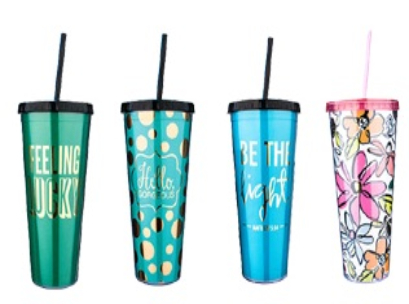On July 1, Vanuatu banned plastic straws, claiming to be the world’s first country to do so. Several cities in the US – including San Francisco, Berkeley and Oakland, California, Seattle, Washington, and Miami Beach, Florida – have put restrictions on the use of plastic straws, sometimes with the addition of non-compliance fines. And in April, Britain announced plans to ban a number of single-use plastic categories beginning next year. Closer to home, Queensland is becoming somethin
g of an Australian beachhead for single-use plastic bans, with both Cairns City Council and Brisbane City Council leading the charge.
Queensland is also home to one of Australia’s largest paper straw importers, Austraw, soon to be known as Bygreen as it expands its business into a wider range of biodegradable and eco-friendly products.
In July, Fortune reported that eight large companies were phasing out their use of plastic straws, including Starbucks (phasing out completely by 2020), Hyatt (switching to plastic alternatives, and only available on request), Hilton (switching to biodegradable alternatives), Marriott (removing from 60 UK hotels, offering paper straws on request), American Airlines (switching to biodegradable alternatives), Alaska Airlines, Seaworld (phasing out across 12 theme parks), and Royal Caribbean (removing across all 50 ships by 2019, offering paper straws on request).
In the UK, chains such as Costa Coffee, Wetherspoons and Pizza Express announced plans to phase out plastic straws earlier this year, and the European Union proposed a ban on single-use plastics.
These combined efforts mean that paper straws will be in high demand for the next few years.
Demand for paper straws outstrips supply
Most of the paper straw suppliers are based in China, but the high carbon footprint of shipment has led to the development of local manufacturing plants. Transcend Packaging opened for business in the UK in July this year and has already signed with McDonald’s
there for manufacture from September.
The sole paper straw manufacturer in the US, Indiana-based Aardvark, saw demand grow 4900 per cent from 2016 to 2017, leading to shipping time blowouts of 12 weeks. Aardvark was recently sold to Hoffmaster to increase its production capacity.
Major clients have historically been food-service operators, theme parks, sports arenas and major healthcare providers. But its new
capacity should see it increasingly able to serve major hotel chains, among others.
Sourcing website GlobalSources lists between 11 and 28 paper straw manufacturers around the world, depending on your definition
of the product. It’s reasonable to expect that in the next few years the number of manufacturers will increase, likely from existing packaging companies adding lines to their manufacturing capabilities.
Sustainable growth may come down to economics
Paper straws may be considered the best biodegradable alternative to plastic, since composting and recycling systems for other
biodegradable alternatives are not yet in place. However, economics may be one contributor to slow penetration in the medium term.
Paper straws cost between five and 10 times as much to manufacture as plastic straws, and although they are cheap, at
between US2¢ and US4¢ per unit, plastic straws are cheaper at about US0.5¢ per unit, depending on the country of manufacture.
This means that larger clients such as hotel chains, keen to do – or at least be seen to be doing – the right thing, may wear a
higher cost. But I’d be surprised if independent on-premise outlets, particularly in global tourism hotspots, will be keen to get onboard.
Competition for the product may be fierce. As Bloomberg reported in June, New York City cocktail bars are fighting over a
limited supply of eco-friendly straws. But this phenomenon is likely to take longer to catch on in Asia. In addition, the expense of paper straws means venues will want to minimise the quantities they order – this is where the strategy of “paper straw on request”
comes into play.
The more venues don’t display straws in (branded) straw holders or automatically place them in drinks when serving, the more
consumers will be trained in time not to expect them, or even ask for them.
But given the consumer outrage over the plastic bag ban here in Australia, and the concomitant behavioural shift required to BYO
bags, BYO straws are probably a few years away.
Norrelle has 20 years’ experience in retail, category, channel and customer strategy, marketing and research, working in and with global retailers, manufacturers and research houses.

